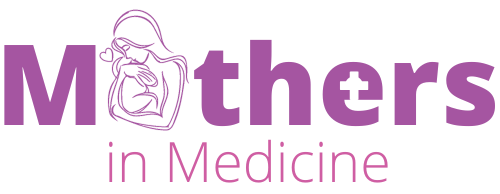Dealing with headaches and fever can be challenging, especially when they disrupt your daily life. These common ailments, while usually not serious, can be symptoms of various underlying health issues and significantly impact your well-being.
In this blog post, I aim to provide comprehensive, easy-to-understand strategies for quick relief from headaches and fever.
Immediate Steps to Alleviate Headache Pain

When a headache strikes, acting quickly can significantly reduce the discomfort and duration of the pain.
- One of the first steps to consider is hydration, as dehydration is a common trigger for headaches, particularly tension headaches. Drinking water or electrolyte-rich beverages can offer quick relief.
- Rest and relaxation are also key; often, headaches are your body’s way of signaling the need for rest.
- Finding a quiet, dark room to relax and attempting to sleep can be remarkably effective. Over-the-counter medication such as ibuprofen, aspirin, or acetaminophen can also provide relief for headache pain. It’s important to use these medications as directed and consider any underlying health conditions or medications that might interact with them.
Natural Remedies and Lifestyle Changes

In addition to medication, several natural remedies and lifestyle changes can be beneficial in managing headaches.
Essential oils like peppermint and lavender have been found to reduce headache symptoms when applied topically to the temples or neck.
Similarly, paying attention to personal hygiene and using natural methods to maintain freshness can significantly improve your overall comfort and health, as explored in our detailed guide on reducing feminine discomfort.
Dietary adjustments can also play a significant role, particularly for those suffering from migraines. Certain foods and additives can trigger migraines, and keeping a food diary can help identify and avoid these triggers.
Stress is a well-known trigger for various types of headaches, so incorporating stress management techniques like yoga, meditation, and regular physical exercise can be effective in reducing the frequency and intensity of headaches.
When to Seek Professional Help

While many headaches can be managed with home remedies and over-the-counter medications, some situations require professional medical attention.
If you experience a headache that is unusually severe, persists for an extended period, or is accompanied by other concerning symptoms such as visual disturbances, slurred speech, or physical weakness, it is important to seek immediate medical care.
Additionally, if you find that headaches are frequently disrupting your daily life, a consultation with a healthcare provider can provide a more thorough evaluation and a targeted treatment plan, which may include prescription medications or other therapies.
Identify Your Headache
Identifying the type of headache you’re experiencing can be crucial for finding the most effective treatment. Here are some common types and their characteristics:
| Type of Headache | Characteristics | Duration and Frequency |
|---|---|---|
| Tension Headaches | – Feels like a tight band around the head. – Often starts slowly and increases in intensity. – Triggered by stress, poor posture, or lack of sleep. |
– Lasts from 30 minutes to several hours. – Occurs occasionally or daily. |
| Migraines | – Pulsating or throbbing pain, usually on one side. – Can include visual disturbances (aura). – Aggravated by physical activity. |
– Lasts between 4 hours and 3 days. – Frequency varies; can occur several times a month. |
| Cluster Headaches | – Severe burning or piercing pain around/behind one eye. – Eye redness, tearing, or swelling on the affected side. – Nasal congestion or runny nose. |
– Lasts from 15 minutes to 3 hours. – Occurs in clusters, several times a day for weeks or months. |
| Sinus Headaches | – Deep, constant pain in the cheekbones, forehead, or bridge of the nose. – Worsens with head movement or straining. – Accompanied by sinus symptoms like nasal discharge, ear fullness, and fever. |
– Duration varies with the sinus issue. – Persists until the sinus infection is resolved. |
| Rebound Headaches | – Occurs daily or nearly daily. – Feels like a tension headache or migraine. – Worsens with medication overuse. |
– Persistent, can last all day. – Increases with medication overuse. |
Effective Home Remedies for Fever
Dealing with a fever effectively involves strategies that aim to reduce discomfort and prevent dehydration, the most critical aspect being fluid intake. For expectant mothers, managing fever requires special attention; exploring safe and effective home remedies tailored for pregnancy can provide essential guidance.
- Ensuring adequate hydration with water, herbal teas, and broths is crucial in supporting the body’s fight against infection and aiding in temperature regulation.
- Applying a cool, damp cloth to the forehead and the back of the neck can also help in reducing body temperature.
- Additionally, wearing light clothing and using light bedding can prevent overheating and help the body maintain a more consistent temperature.
These simple yet effective measures can provide significant comfort and aid in the overall management of fever.
Over-the-Counter Medications and Their Use

Over-the-counter medications can play a pivotal role in reducing fever and alleviating associated discomforts such as body aches and headaches. Acetaminophen and ibuprofen are commonly used to lower fever and relieve pain.
It is essential to adhere to the recommended dosages and be aware of any potential interactions with other medications being taken. Aspirin, while effective in reducing fever in adults, should not be used in children or teenagers due to the risk of Reye’s syndrome, a rare but serious condition.
Understanding the appropriate use of these medications is key to safely and effectively managing fever symptoms.
When to Consult a Healthcare Professional
While many cases of fever can be managed at home, there are circumstances where medical consultation is necessary. If a fever reaches 104°F (40°C) or higher, it is crucial to seek medical attention as this may indicate a more serious underlying condition.
Persistent fevers lasting more than three days also warrant a visit to a healthcare professional. Additionally, if the fever is accompanied by other symptoms such as a rash, severe headache, stiff neck, or confusion, immediate medical evaluation is necessary to rule out serious infections or other health concerns.
Long-Term Management and Prevention

The long-term management of these problems involves creating and maintaining routines that can help mitigate the frequency and severity of these episodes.is vital; inconsistent sleep patterns are known to trigger headaches, especially migraines.
Establishing and sticking to a consistent sleep schedule can make a significant difference. Nutrition also plays a crucial role in headache management. A balanced diet rich in fruits, vegetables, whole grains, and lean proteins can provide the necessary nutrients and reduce headache occurrences.
Avoiding processed foods, excessive caffeine, and alcohol is also beneficial. Regular physical activity is another key component. Exercise not only promotes overall health but also releases endorphins, which act as natural painkillers.
Incorporating regular exercise into your routine can help reduce both the intensity and frequency of headaches.
Stress Management Techniques

Stress is a common trigger for both headaches and fever. Managing stress effectively is therefore critical for overall health. Practices such as mindfulness and meditation have been shown to be beneficial in managing stress and have been linked to a reduction in the frequency of migraines and tension headaches.
Effective time management can also play a significant role in reducing stress levels. Prioritizing tasks, setting realistic goals, and taking regular breaks can prevent overexertion and reduce the likelihood of stress-induced headaches.
For some, stress can be overwhelming, and in such cases, seeking professional help such as counseling or therapy can be invaluable. These professionals can assist in developing effective coping strategies and provide support in managing stress more effectively.
Regular Health Check-Ups
Regular check-ups with a healthcare provider can be instrumental in identifying and addressing any underlying conditions that may be causing frequent headaches or fevers. These check-ups allow for early detection and treatment of any health issues, which can prevent complications and improve overall health.
Discussing your headache and fever patterns with a healthcare provider can also lead to more personalized advice and treatment plans, tailored to your specific health needs.
Advanced Treatment Options for Chronic Conditions

For those suffering from chronic or particularly severe headaches, more advanced treatment options may be necessary. Prescription medications such as triptans, beta-blockers, or anticonvulsants are often prescribed for migraine prevention and relief.
These medications can provide significant relief but should be used under the guidance of a healthcare professional. Botox injections, approved for chronic migraine prevention, have also been shown to reduce the frequency of headaches.
In cases of tension headaches, physical therapy can be an effective treatment option. Physical therapists can help improve posture and alleviate muscle tension, which can reduce the frequency and severity of tension headaches.
Exploring Alternative Therapies
In addition to traditional medical treatments, alternative therapies can offer additional relief and can be particularly beneficial for those seeking holistic approaches.
Acupuncture, a practice derived from traditional Chinese medicine, has been found effective in treating chronic headaches and migraines.
Biofeedback is another technique that involves learning to control certain bodily processes that contribute to tension and pain. This method can provide significant relief from chronic headaches.
Herbal remedies, such as feverfew and butterbur, have also shown promise in preventing migraines, although they should be used with caution and under the guidance of a healthcare professional.
FAQs
Can certain weather conditions trigger headaches or migraines?
Yes, weather changes can trigger headaches and migraines in some individuals. Factors like changes in barometric pressure, humidity, temperature, and storms are known to affect people who are sensitive to these changes.
Keeping a headache diary that includes weather conditions can help identify patterns and triggers.
Are there any specific relaxation techniques that are particularly effective for headache relief?
Techniques such as progressive muscle relaxation, deep breathing exercises, and guided imagery can be effective in providing headache relief. These methods help reduce stress, which is a common trigger for headaches.
Practicing these techniques regularly can also help prevent the onset of headaches.
Can dehydration cause fever, similar to its effect on headaches?
While dehydration is a well-known cause of headaches, it does not directly cause fever. However, severe dehydration can disrupt the body’s normal functioning and potentially contribute to conditions that might lead to a fever.
Staying well-hydrated is essential for overall health and can help prevent dehydration-related headaches.
Is it safe to use essential oils for headache relief during pregnancy?
It’s important to be cautious when using essential oils during pregnancy. Some oils can be safe, but others might not be recommended. It’s best to consult with a healthcare provider before using any essential oils for headache relief during pregnancy to ensure safety for both the mother and the baby.
How does caffeine affect headaches and fever?
Caffeine can have both positive and negative effects on headaches. For some, it can help alleviate headache pain, especially in combination with some pain-relief medications. However, excessive or regular caffeine consumption can lead to withdrawal headaches.
Caffeine does not have a direct effect on fever, but it can cause dehydration if consumed in large quantities.
Are there any specific foods known to help reduce fever or alleviate headache symptoms?
While no specific foods can cure a fever or headache, certain foods can help support overall health and may aid in symptom relief. Foods rich in magnesium, such as almonds and spinach, may help with headache relief. For fever, foods that are easy to digest and hydrating, like soup, can be beneficial.
Always ensure a balanced diet to support the body’s immune response and overall health.
Conclusion
Effective management of headaches and fever, or any health condition, is not solely about addressing physical symptoms. It involves a holistic approach that considers your physical, mental, and emotional well-being.
By employing the strategies discussed in this blog post and maintaining an overall balanced and healthy lifestyle, you can manage and prevent headaches and fever more effectively.
This holistic approach can lead to a healthier, more comfortable life, allowing you to enjoy your daily activities with fewer interruptions from these common but disruptive symptoms.

